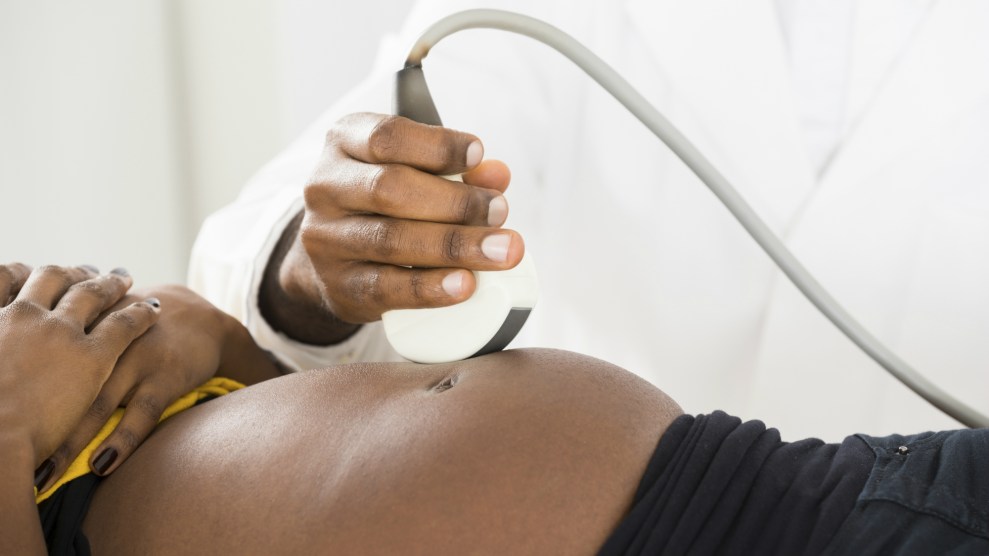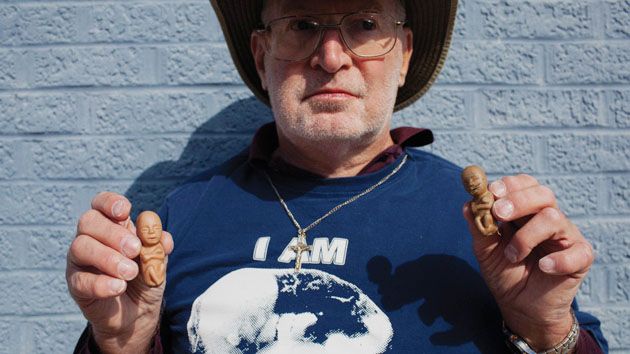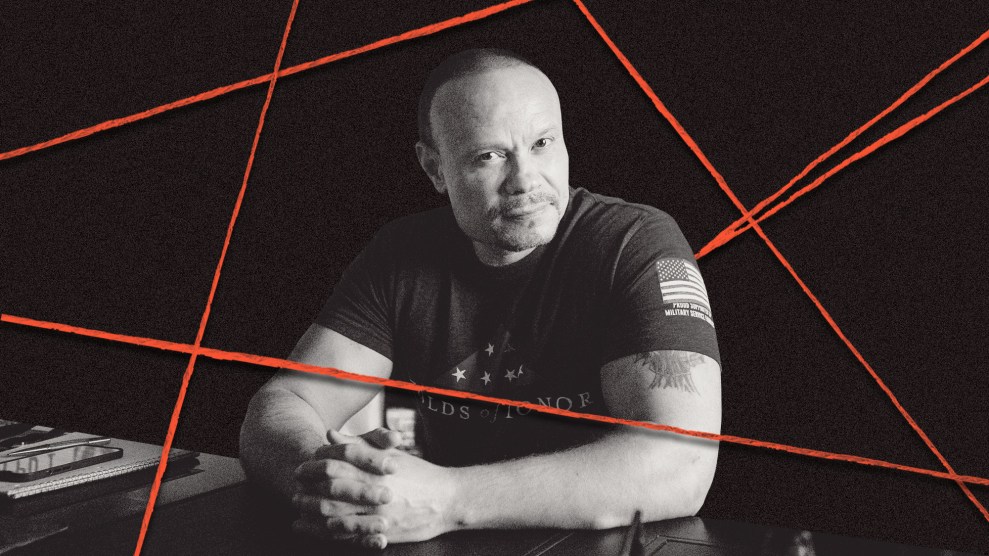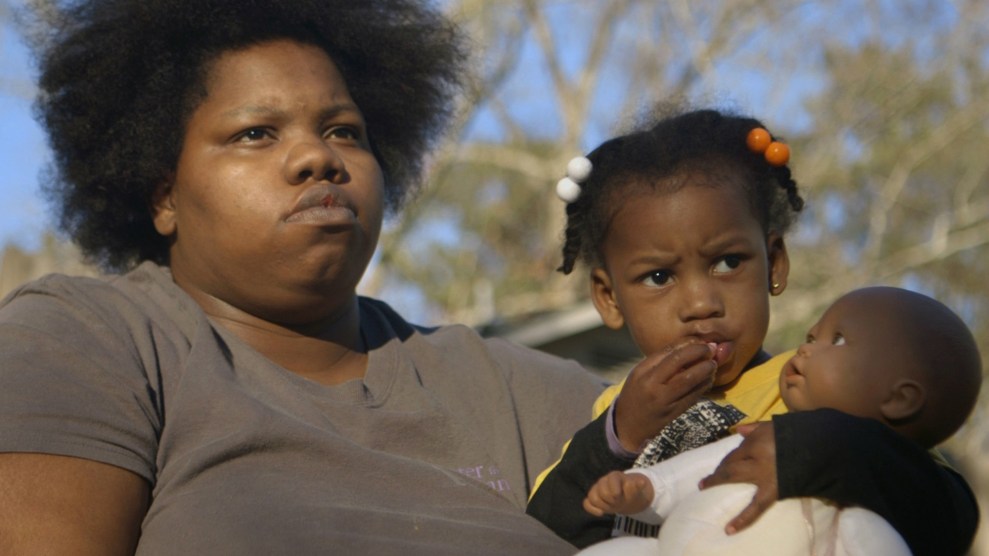
April, a 24-year-old single mother and a central character in "Jackson," prepares for the birth of her fifth child.Jackson Documentary/Maisie Crow
Few policy areas have been so strongly affected by the first 100 days of the Donald Trump administration as women’s health care and access to reproductive services. Trump promised he would launch an all-out offensive against abortion access protections and organizations like Planned Parenthood, and the Republican Congress has begun the process. Across the country, emboldened anti-abortion state legislatures have tried to pass a new wave of abortion restrictions.
But in Mississippi, extensive abortion restrictions have been on the books for years. It’s one of a handful of states with only one operating abortion clinic—the Jackson Women’s Health Organization, which Mississippi conservatives have fought to close—leaving thousands of women, particularly low-income women of color, with limited access to services. The state has poured resources into more than three dozen crisis pregnancy centers, which offer nonmedical services and counsel women against having an abortion. A new crisis pregnancy center opened right across the street from the clinic late last month.
There was a time when what was happening in Mississippi was seen as unique. Now women across the country fear their state could be next.
Enter Jackson, an award-winning documentary highlighting the realities of living in a state seeking to eliminate abortion access. Released on the festival circuit last June and broadcast nationally on Showtime earlier this week (Showtime Showcase will rebroadcast the film on Friday, and it is now available on demand), the documentary offers an intimate look into the lives of three women: Shannon Brewer, the director of the Jackson Women’s Health Organization; April, a 24-year-old single mother of four who’s facing an unplanned pregnancy; and Barbara Beavers, the executive director of the pro-life Center for Pregnancy Choices, a Jackson-based crisis pregnancy center. In following the often intersecting lives of its subjects, Jackson not only highlights the struggles of operating Mississippi’s last clinic, but also explores what life can be like in a state with few options. Filmed over three years and drawing from more than 700 hours of footage, Crow deftly connects the women’s stories to one another and to developments at the state and national levels and gives viewers an opportunity to understand the people caught up in the fight for reproductive rights.
Mother Jones caught up with Crow shortly before Jackson‘s national broadcast premiere to discuss how audiences have reacted to the film, what it was like to spend years working with the documentary’s subjects, and what the film means at a time when access to abortion is under an increased threat.
Mother Jones: How would you describe this documentary to someone, and how did you decide you wanted to make it?
Maisie Crow: Jackson is a film about the anti-abortion movement’s efforts to dissemble and take apart access to abortion in Mississippi and really across the Deep South. And now it really rings true across the country. In 2012, I read an article about HB 1390, the admitting privileges law that had just been signed by Gov. Phil Bryant. I was shocked—I grew up in Corpus Christi, Texas, and at the time there was an abortion clinic there. For as much as I knew, there were abortion clinics in every city. To realize there was a state with one abortion clinic and there was a law that could close it down, I was totally shocked. I went down to Mississippi shortly after reading that article.
Over time, I built really strong connections with the clinic, including Shannon Brewer [the director of the Jackson Women’s Health Organization] and Dr. Willie Parker [who was providing abortion care there at the time]. I spent a lot of time getting to know them, and then I made a short film called The Last Clinic (released in 2013). And it was in making that film that I realized I wanted to tell a larger story and weave in the anti-abortion movement in Mississippi and what they were doing to block access for women.
MJ: Two of the women in this film—Shannon and April—are African American. I’ve done some writing about the unique complexities women of color, particularly black women, face when it comes to accessing abortion care. It‘s not just economics; there’s a very specific type of shame that black women can feel for even considering an abortion. How did you navigate telling those stories?
MC: Being a woman who is not from Mississippi, who did not grow up in those circumstances, and who is not a woman of color, I really relied on Shannon to help me understand what that experience was like. I paid careful and close attention to make sure that I was telling Shannon and April’s story in the best and most honest way possible because it was not my experience and so many problems can arise from that.
MJ: How did you first come in contact with April and begin working with her? She seems to be a remarkable example of an everyday woman’s experience in the state.
MC: I think it is risky to say that her experience is an everyday woman’s experience because we all have vastly different experiences in life and health care. But once I met Barbara and started filming Barbara, I knew I had to tell the story of a woman who sought care at Barbara’s crisis pregnancy center, and that is where I met April. The day or two after I met April—I was at her house doing an interview—she told me she had consumed Clorox [to terminate a pregnancy]. In the film, that’s revealed during a counseling session at the crisis pregnancy center. That was the moment where I was like, this is really scary—for women to feel like they have to resort to drinking bleach because they don’t want to be pregnant. That was something that couldn’t be left out of a film about access to abortion care.
Women’s choices should be their choices no matter what their situation in life. I want women to be educated on what their choices are. And to come to a place like Mississippi and meet women who don’t know what their options are, not because they’re not smart but because they haven’t been given that knowledge or they’ve been misled—that’s alarming to me.
I really felt April’s experience was vital in terms of understanding how these laws and these crisis pregnancy centers and the stigma, how those things work together to affect a woman. April’s story is unique to her, but there are certainly other women that have experienced similar things, whether it’s multiple unwanted pregnancies without access to contraceptives or accurate information about abortion. After the screening in Jackson, Mississippi, several women came up and said, “Thank you for making this. I’ve been to that same crisis pregnancy center and I felt the same shame that April felt.”
MJ: So, as you’re talking to one woman of color in charge of Mississippi’s only clinic with abortion services and another woman of color navigating a very difficult pregnancy, you are also interacting with Barbara, who comes from a strong anti-abortion perspective. How familiar were you with her side of the story going into this?
MC: I was probably most familiar with Barbara’s perspective. I grew up in South Texas. I grew up more in the pro-life movement and the conservative mindset than the liberal community that I am part of now. So that gave me unique insight into Barbara’s world, and I think that helped me understand her and get good access.
MJ: A typical documentary about abortion access often follows a woman who is certain she wants an abortion through the gauntlet she has to go through—from the informed-consent information many states require doctors to distribute, to the often required ultrasound and the mandatory waiting period—before she can get the procedure. Why isn’t that the main story in Jackson?
MC: It is important for that voice to be portrayed, but what I felt was missing in the overall discussion was the complexity, the nuance, the gray areas that exist in places, especially in the Deep South, where there is a layer of stigma and shame associated with abortion. That tends to influence some of the decision-making. So you might have a woman that doesn’t want to be pregnant, who is not being given access to contraceptives, who has not been advised properly on contraceptive use. She doesn’t want to be pregnant, but she feels like she has no options. What is that experience like? That is what I was trying to understand because when I got down to Mississippi I realized that it was not cut and dry.
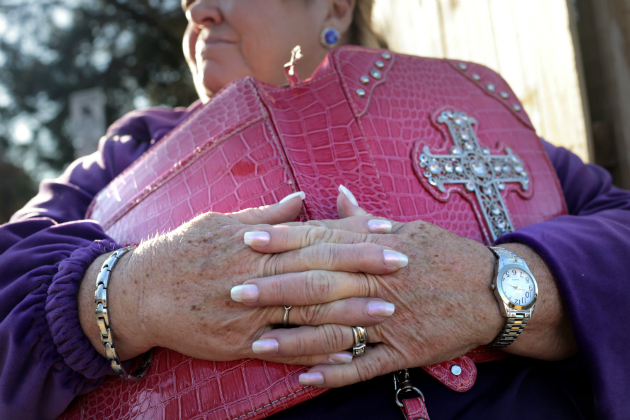
MJ: What was it like for you to film both sides of this issue?
MC: It was weird. You’re filming both sides of this super contentious issue and there are a lot of emotions and passions in it. As a woman I have my own beliefs, I certainly don’t try to set those aside or remove them because it has to do with my health care as well. But I worked to not necessarily let that get in my way or allow myself to get angry or frustrated.
MJ: This film is having its national broadcast premiere during a very intense political moment when it comes to reproductive rights and abortion access. How does your film fit into all that?
MC: I am glad that the film exists at this point in time because I think it is a really scary moment for reproductive rights and access to reproductive health care. I think that this film helps people understand the different issues that are woven into a women’s ability to access reproductive health care. I hope it really sparks some discussions. We’ve seen at festivals that audiences are really engaged and want to talk about these issues. There is so much to say and so much to talk about and it is my hope that the film sparks these discussions and people can continue them in their communities.
MJ: Jackson has been on the festival circuit for several months now, and it was screened both before and after the Supreme Court’s decision in Whole Woman’s Health v. Hellerstedt, as well as before and after the presidential election. Have reactions to the film changed in the months since its first screening?
MC: Of course! Prior to the election, I think there was a sense of confidence that things were changing and that this country was becoming more progressive and that women’s rights were being treated more fairly in regards to health care. The reaction used to be, “Oh, look at what’s happening in Mississippi.” Or “Oh, it’s too bad that’s happening in Mississippi.” Or “What can we do to change what is happening in Mississippi?” Now it’s “Oh my God, this is happening in my backyard.” People are really alarmed.
There’s a moment in the film where Dr. Parker is standing in front of the Supreme Court steps and he says, “In November, vote as if women’s lives depended on it because they will.” We partnered with Planned Parenthood for a screening that had been planned before the election but didn’t happen until a week or two after it. And in that screening, you could hear people crying at that part. The screenings have changed drastically. It’s no longer “What’s happening to the women in Mississippi?” It’s “What’s happening to the women across this country?”


